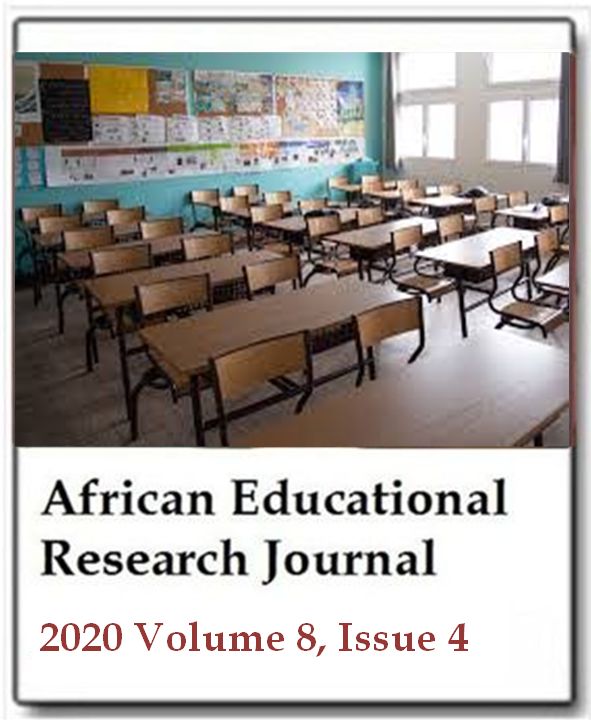Examination of self-efficacy beliefs of preservice Turkish language education teachers on educational internet use
Bekir İnce, Murat Topal, Safa Eroğlu and Gökhan Haldun DemirdövenAfrican Educational Research Journal
Published: November 24 2020
Volume 8, Issue 4
Pages 866-875
DOI: https://doi.org/10.30918/AERJ.84.20.181
Abstract
This study was conducted to examine the self-efficacy belief levels of preservice Turkish language education teachers on educational internet use in terms of various variables. The sample of the study was selected based on the non-random purposive sampling method and 197 preservice Turkish language education teachers who agreed to participate in and answer the questions in the scale generated the sample of the study. The study was conducted as a survey research and the data was collected via “Educational Internet Usage Self-Efficacy Beliefs Scale” which was developed by Akgün et al. (2017) and which consists of 26 items in 5-point-likert scale. The findings of the study present that the self-efficacy belief levels of preservice Turkish language education teachers on educational internet usage do not differ significantly according to the gender, class level and age variables. On the other hand, the self-efficacy belief levels of the preservice Turkish language education teachers on educational internet usage differ significantly according to computer using experience, weekly internet using time period, having an education on educational internet use and perceptions on the level of competence in using FATİH Project technologies within the education. It is highly recommended that similar studies with different and wider samples should be conducted in the future.
Keywords: Self-efficacy, preservice teacher, preservice Turkish language education teachers, educational internet use.
Full Text PDFThis article is published under the terms of the Creative Commons Attribution License 4.0

